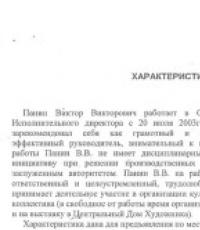Why can't you sell anti-freeze? The most honest story about non-freezing liquids
With the first serious cold weather and snowfalls, narrow-eyed people in filthy padded jackets are registered for permanent residence on the roadsides, dancing around pyramids of balloons all day long. And the domestic press has another win-win topic: broadcast police reports about megatons of discovered “scorched” windshield washer fluid and the rantings of home-grown experts about how “fucking” it is.
This year, all kinds of regulatory authorities, primarily the police, were the first to wake up in the media on this topic. The news feeds were full of their plans for raids on the rear of manufacturers and traders of the so-called scorched antifreeze liquid. This season, economic police have decided to create a mobile group in all districts of the capital, each of which will check the quality of the goods, the presence of a certificate and a trade permit from sellers.
“Experts” responded almost immediately, starting to chew their usual cud on the topic that the cheap “left-handed” anti-freeze liquid is made from methanol, which is terribly dangerous, and the expensive legally sold “washer” is made on the basis of smelly isopropyl alcohol, which is almost useful for the body of every car owner.
In short, songs about the terrible danger of methanol in windshield washer fluids are at least a sly distortion of the facts. Beneficial exclusively to isopropyl alcohol producers!
You can say a lot about the dangers of methanol, that is, methyl alcohol, in terms of the danger of taking it orally. Yes, if you drink even 15 mg of this substance, you will most likely die. But in the same way, you will go to your forefathers if you sip about the same amount of isopropyl.
Recorded opponents of the use of methanol as an “anti-freeze agent” in the washer reservoirs of our cars usually scare the average person with the fact that drunks will begin to poison themselves en masse, immediately trying to drink it throughout the country.
Reality testifies to the completely opposite: every winter, hundreds, and maybe thousands of tons of methanol-containing mixture are sold cheaply on every corner, and there has been no flow of police and medical reports about epidemic-mass poisonings among the broad masses of domestic homeless people and drunks. .
At the same time, motorists in both Europe and the United States have been calmly washing the windshields of their cars with methanol-containing liquids for decades and feel great. And do you know why? Is it really true that no environmentally-obsessed country has yet understood the harm of methanol? - you ask. Got it. But they do not forget that isopropyl alcohol is actually much more dangerous for the driver than methyl alcohol! After all, the person driving does not drink anti-freeze - he inhales its fumes! In fact, and this was found out a long time ago, isopropyl alcohol is almost twice (!) more dangerous than methanol! It is not for nothing that the maximum permissible concentration (MPC) of its vapors in the air is 0.6 mg per cubic meter, and for methanol this figure is 1 mg per the same volume.
Why is it that every winter we hear and read horror stories about methyl alcohol in the media, while isopropyl alcohol is presented to us almost like nectar? Most likely it all comes down to someone’s profits. In our market Wholesale price tons of methanol - about 12,000 rubles, and isopropanol - more than 70,000! Feel the difference, as they say: what is more profitable to sell?!
Even funnier is the fact that of the approximately three million tons of methanol we produce per year, two are exported. Including to Europe - for the production of winter washer fluid...
Registration N 10037
I, Chief State Sanitary Doctor Russian Federation
G.G. Onishchenko, found that recently there have been more frequent cases of using methyl alcohol (methanol) for the production of technical fluids used in vehicle care products, including as part of windshield washer agents.
The specified liquids are being imported into the territory of the Russian Federation, in last years Their production is organized at domestic enterprises.
Based on the results of state sanitary and epidemiological surveillance and laboratory and instrumental studies performed by accredited testing centers, the presence of methanol was established in windshield washer fluids "Klaxon", "Magistral", "Obzor", "Blesk", "Northern Route" and others produced by enterprises of the city. Moscow, St. Petersburg, Moscow, Tula, Nizhny Novgorod, Kaluga, Kostroma regions.
At the same time, the labels and accompanying documents of household technical liquids do not contain information about the presence of methanol in their composition.
Methyl alcohol (methanol) is the most dangerous toxic substance; its organoleptic properties are practically indistinguishable from ethyl alcohol and, if used as a surrogate alcohol, leads to death.
At the same time, insufficient awareness of the population about the serious consequences of using technical means containing methanol as substitutes for alcohol, and a neglectful attitude towards factors harmful to health, lead to numerous cases of poisoning with it in everyday life.
Poisoning with methyl alcohol (methanol), according to the Federal State Institution "Scientific and Practical Toxicology Center" of the Russian Health Service, ranges from 0.1 to 0.5% of all hospitalized patients, mortality - from 23 to 100%.
Taking into account the above, in order to prevent the occurrence of poisoning among the population with methanol and guided by Article 51 Federal Law dated March 30, 1999 N 52-FZ “On the sanitary and epidemiological welfare of the population” (Collection of Legislation of the Russian Federation, 1999, N 14, Art. 1650) I decide:
1. Organizations engaged in the production and sale of vehicle care products, including windshield washer fluids, should stop the practice of using methanol in their production, as well as the sale to the population of these products containing methanol.
2. Recommend to executive authorities and local government organize comprehensive inspections of organizations engaged in the production and sale of vehicle care products in order to prevent the use of methanol in their production and sale to the public.
3. To the heads of Rospotrebnadzor departments for the constituent entities of the Russian Federation:
3.1. Do not allow the issuance of positive sanitary and epidemiological conclusions for vehicle care products containing methyl alcohol (methanol), including for foreign-made products imported into the territory of the Russian Federation.
3.2. Strengthen state supervision over compliance with the requirements of sanitary legislation during the production, storage, transportation and sale of vehicle care products, paying special attention to preventing the use of methyl alcohol in their composition.
3.3. Intensify efforts to widely inform the population about the toxic properties of methanol and the serious consequences of using it as a substitute for alcohol.
3.4. Bring the text of this resolution to organizations that produce and sell vehicle care products.
4. The Department of Sanitary Supervision of Rospotrebnadzor organize the development sanitary rules“Hygienic requirements for working conditions when working with methanol” with their subsequent approval and submission for registration to the Ministry of Justice of Russia in the prescribed manner.
5. Control over the implementation of this resolution shall be entrusted to the Deputy Chief State Sanitary Doctor of the Russian Federation L.P. Gulchenko.
Rospotrebnadzor has issued recommendations on the purchase of windshield washer fluids for cars. The agency explains that during production it is allowed to use only isopropyl alcohol, which is not toxic to humans, and the finished product must be purchased only in specialized stores. However, motorists, as before, prefer counterfeit goods on the sides of highways.
Coordinator of the Blue Buckets movement Petr Shkumatov notes that the approved antifreeze smells bad and does not clean glass well, and is very expensive. “What is sold in stores contains , and, as practice shows, freezes 5-7 degrees earlier. These guys who sell along the roads, they buy pure alcohol and mix it with water because it’s quick and convenient,” says the social activist.
Auto expert and partner of the Autostat agency Igor Morzharetto explains that legal liquid is made on the basis of isopropyl alcohol, while counterfeit liquid is made on the basis of methyl alcohol or methanol. If anti-freeze based on isopropyl alcohol is sold in stores and gas stations at a price of 300 to 600 rubles. for a 4-5-liter container, then counterfeit methanol liquid is sold for 150 rubles, and with small-scale purchases it can be bought even for 70 rubles.
The pungent odor of isopropyl antifreeze is even mentioned in the explanation of Rospotrebnadzor: “Isopropyl alcohol has an unpleasant, pungent odor, reminiscent of acetone, which is difficult to overcome even with concentrated fragrances, but this alcohol is not toxic to humans.” At the same time, methanol is called a strong poison in the recommendations.
Price is not the only reason for its popularity, says Morzharetto: “Isopropyl alcohol has worse properties, freezes at a higher temperature, has worse cleaning properties, and it's more expensive. Methyl alcohol is much cheaper. When a counterfeit is both better and cheaper, there will be demand for it.”
Methanol can indeed cause fatal poisoning, says narcologist Anton Makaveev: “Methyl alcohol affects the nervous system and is especially dangerous for the organs of vision. Small doses irritate the mucous membranes of the respiratory tract and eyes, larger doses lead to dizziness, blurred vision, and diseases of the gastrointestinal tract.”
When ingested, the lethal dose of methanol for humans ranges from 30 to 50 grams, and even 5-10 grams may be sufficient for severe poisoning with blindness. The concentration of methyl alcohol in a washer canister is approximately 40%, that is, a five-liter container contains about 2 liters or 1500 grams of methanol. However, Makaveev clarifies that methanol is harmful only when taken orally, and the concentration of poison vapors in the car interior during normal use of the washer is thousands of times less.
According to Rospotrebnadzor, 1,200 cases of methanol poisoning are registered annually in Russia, of which more than 80% result in death. However, the agency does not specify which cases of poisoning were taken into account in the statistics, and whether there was at least one casualty from using the washer in a car.
Anton Makaveev clarifies that cases of poisoning during normal use of liquids are extremely rare. “I know of only one case of poisoning by washer fluid vapors, when the driver inhaled to the point of dizziness and vomiting, but this case also looks like some kind of coincidence. However, now the victim definitely avoids roadside sales points,” the doctor recalls.
An employee of one of the illegal industries, on condition of anonymity, told the site’s correspondent that cases of poisoning most often occur in factories and similar industries: “People themselves do not know what they are dealing with. There are no markings on the raw materials; at best, they are told that it is industrial alcohol. Sometimes they actually drink, sometimes they just work without precautions and get a dose by accident.”
Symptoms of poisoning do not appear immediately, but within a period of 6 to 30 hours, adds Makaveev. If you suspect methanol poisoning, he recommends calling immediately ambulance, rinse your eyes and mouth with clean water and try to remove methanol from the body. To do this, you need to force the victim to drink as much water as possible and give him sorbents, for example, activated carbon.

The recommendation to drink vodka is not a myth, says Makaveev: “Ethanol is a competitive antidote to methanol, which, relatively speaking, switches on oxidizing enzymes, which helps remove methanol unoxidized. A sufficient amount for a person of average build is 100 grams of vodka per day, no more.”
The first ban on the use of methanol appeared in 2000, when the Chief Sanitary Doctor of Russia signed a decree “On the prohibition of the use of windshield washer fluids containing methyl alcohol (methanol).” This document actually did not change anything, and in July 2007, the second decree of the Ministry of Health “On stopping the use of methyl alcohol in vehicle care products” was issued.
The resolution calls methanol a dangerous toxic substance, and the reason for the ban was numerous cases of poisoning, but Igor Morzharetto considers the problem far-fetched: “ Chief physician Onishchenko believed that we all drink anti-freeze and die. Although this was definitely not a mass phenomenon. But there are fools always and everywhere.”
One solution to the problem would be to produce denatured methanol with a taste that makes it impossible to ingest, but this requires an appropriate the legislative framework. However, as deputy Vyacheslav Lysakov noted in a conversation with a website correspondent, there are no legislative changes There are no plans to do anything about this.
“After recent cases of poisoning with cleaning products, we, on the contrary, are tightening our responsibility for the sale of counterfeit products. It is clear that in that case, natural selection, so to speak, occurred. And in the case of anti-freeze, we already have standards according to which isopropylene must be used for it, and it is quite enough to comply with these requirements,” says the deputy.

Supporters of the legalization of methanol refer to foreign experience, but Vyacheslav Lysakov calls for more caution in comparing Russian roadside cans with those that are officially sold, for example, in Finland. “This is a technology question that only chemists can answer. Who knows how the liquid is produced there, and how well it is possible to neutralize toxic substances?” — the deputy asks, at the same time proposing to compare prices for methanol liquid in Europe and Russia.
Rospotrebnadzor, in turn, promises to keep the situation under constant control and recommends buying only legal washer fluid. It must have a label with information about the manufacturer indicating the address, name of the product, its composition, compliance technical specifications, expiration dates and description of precautions.
Such concern for the health of depressed citizens has endangered the lives of millions of drivers who, in severe frosts, are deprived of the opportunity to drive with clean windows. The situation has not changed in 17 years. Illiterate statements in some media only aggravate it: every now and then you have to read about the pungent smell of methanol washer... Meanwhile, we are always talking about isopropyl, whose amber cannot be confused with any other.
We are prohibited from using methanol, but it is safer than the officially sold washers! Measurements inside a car with the windshield washer constantly on show that when using a methanol-based liquid, its maximum permissible concentration in the driver’s working area is reached after about five minutes, and if it is isopropanol-based, after 5–10 seconds. Wow difference!
Not for internal use
According to our observations, about 50% of windshield washers sold on the market are counterfeit methanol liquids. And since methyl alcohol is actually illegal in our country, clandestine washer manufacturers purchase it illegally, without even telling their own employees what they are dealing with. The taste and smell of poisonous methanol is indistinguishable from edible ethanol. Therefore, the mentioned workers, not realizing the danger, not only can get drunk themselves, but also sometimes sell stolen alcohol to others.
It is for this reason that methanol is spreading throughout the country, causing many deaths. And the main source of its uncontrolled free circulation is where it passes through as ordinary industrial alcohol. At enterprises that legally use methanol, this is excluded: the liquid is supplied in road or rail tanks with the inscription “Methanol is poison”, stored in containers with similar reminders, and all employees are informed what methanol is and how to work with it.
The most popular solution in our country is to ban, close, destroy. But the illegal market will not disappear from this. And the prices for washer fluid will skyrocket! Isopropyl alcohol, on the basis of which our washer fluids are made, is produced by the only enterprise in the country - the Orsk Synthetic Alcohol Plant. The end result will be that the cost of its products will rise to the level of imported ones.
This leads to an even larger price gap between illegal methanol and legal isopropyl washer. Both the consumer and the honest producer lose.
Viscosity of windshield washer fluids based on various alcohols
*Less is better.
The solution is ready!
Methanol is only poisonous when it enters a person's stomach. This means that you just need to prevent ingestion. The easiest way is to make it denatured by adding so-called denatonium benzoate (aka Bitrex). This super-bitter substance instantly discourages you from using this antifreeze for other purposes. By the way, Bitrex was tested according to a program signed by the same sanitary doctor, and passed all the tests.
Does all methanol produced need to be denatured? It is enough to introduce “selective” denaturation so that, along with technical methanol, which is produced in accordance with GOST 2222–95, denatured methanol is produced - in accordance with technical specifications or STO. After the legalization of such a product by Rospotrebnadzor, it will become possible to produce windshield washer fluids that are absolutely unsuitable for internal consumption. Moreover, the same can be done with raw materials based on ethyl alcohol. The state will receive an excise tax on the sale of food alcohol, and finished products made using denatured alcohol should be exempt from excise taxes. Everyone will benefit. If, of course, the state wants to preserve people's health.
Rospotrebnadzor specialists during supervisory activities. Poisonous methanol was found in it.
As Rospotrebnadzor explained to RG, in January the territorial bodies of the control agency inspected more than 6.3 thousand enterprises that produce and sell windshield washer fluid. Based on the results of inspections in 44 regions, facts were revealed retail sales windshield washer fluid containing methanol. Three enterprises produced antifreeze with methanol. All products have now been confiscated and seized.
Unscrupulous entrepreneurs producing and selling toxic liquid for washing car windows were fined 1.5 million rubles. IN law enforcement agencies over 150 cases were sent.
But having examined the products that are sold in the Moscow region, employees of the Moscow Region Rospotrebnadzor found methanol in them, but did not find the enterprise where the toxic liquid is made. Having driven to the addresses indicated on the anti-freeze labels, the inspectors did not find a single workshop.
Thus, it turned out that it is unknown where the following products are produced:
Anti-freezing liquid for glass washer "SNOWQUEEN" -30 0 C (LLC "Company "Auto-Port", Moscow region, Mytishchi, Ostashkovskoe highway, possession 1B, building 8);
- windshield washer fluid NORD STREAM-25 brand "Vyuga" (LLC "InformProgress", Moscow region, Mytishchi district, Yudino village);
- low-freezing windshield washer fluid Elbrus (RusPromServis LLC, Moscow region, Solnechnogorsk, Krylova str., vl. 10-v);
- low-freezing windshield washer fluid "SKYLUX" -30 0 C, (Vector LLC, Podolsky district, Nikulino village, 2); - low-freezing windshield washer fluid "GLEIDEXCLUSIVE" -30 0 C (InzhTekhPostavka LLC, Ramensky district, Ostrovtsy village, 14 km from the Moscow Ring Road along Novoryazanskoye Highway);
- low-freezing windshield washer fluid "CRISTALCLEAR" -30 0 C (Regalit LLC, Ramensky district, Ostrovtsy village, 14 km from the Moscow Ring Road along Novoryazanskoye Highway);
- low-freezing windshield washer fluid "ICESTORMGLASSCLEANER-30 0 C (Regalit LLC, Ramensky district, Ostrovtsy village, 14 km from the Moscow Ring Road along Novoryazanskoye Highway);
- glass washer low-freezing liquid "Spectrum Lemon" -30 0 C, (Pharm LLC, Podolsk, Gaidara St., 10B);
Sellers who sell these products cannot explain their origin. Information regarding questionable products will be forwarded to law enforcement agencies.
Why is methanol dangerous for people? This is a strong poison with predominantly nervous and cardiovascular effects with a cumulative effect. The toxic effect of methanol is associated with depression of the central nervous system, the development of severe metabolic acidosis (changes in the acid-base balance of the body), damage to the retina and dystrophy of the optic nerve.
Taking methanol orally is dangerous: 5-10 ml can cause severe poisoning and blindness, and 30 ml can lead to death. If you inhale methanol vapors, poisoning may occur. Signs of it will be a state of mild intoxication, nausea, vomiting, severe headache. A person who has inhaled methanol will begin to have pain in their eyes and their vision will quickly deteriorate.
With large doses, poisoning can occur at lightning speed, death occurs within 2-3 hours.
The use of methyl alcohol in the production of auto chemicals was banned back in 2007. But illegal producers are not stopped by any bans or fines. The legal raw material for the production of antifreeze liquid - isopropyl alcohol - is expensive.
Accordingly, expensive production affects the final price of the product. A 5-liter bottle of legal anti-freeze cannot retail for less than 300 rubles. And in Russia, every motorist uses hundreds of liters of washer fluid during the winter. Therefore, it is natural that buyers are drawn to cheaper goods, which can only be made using cheap methyl alcohol. Therefore, when liquid is sold for 100-150 rubles on the roadsides, or in car services or car washes, it is definitely made using poison.
The main differences between anti-freeze with methanol are their low cost and lack of odor (the more expensive legal liquid always has a pungent odor, which is produced by isopropyl alcohol, which is allowed in production - editor's note).
Rospotrebnadzor employees ask all motorists not to buy liquids with methanol, even taking into account the fact that in some countries this alcohol is allowed in the production of auto chemicals. It is really dangerous, especially if a person spends a lot of time driving and constantly uses washer fluid, inhaling toxic fumes.





